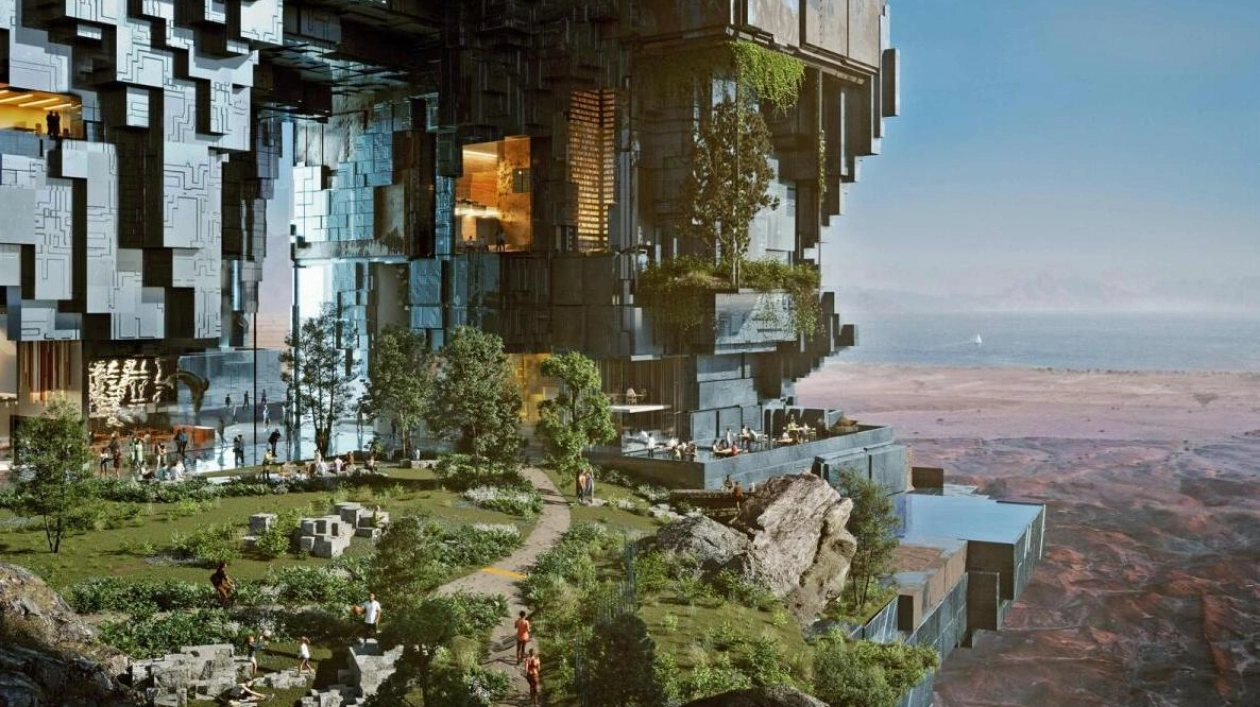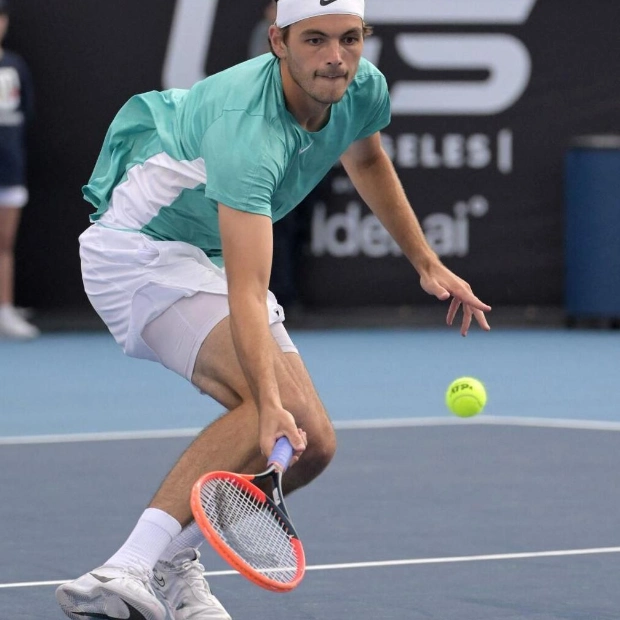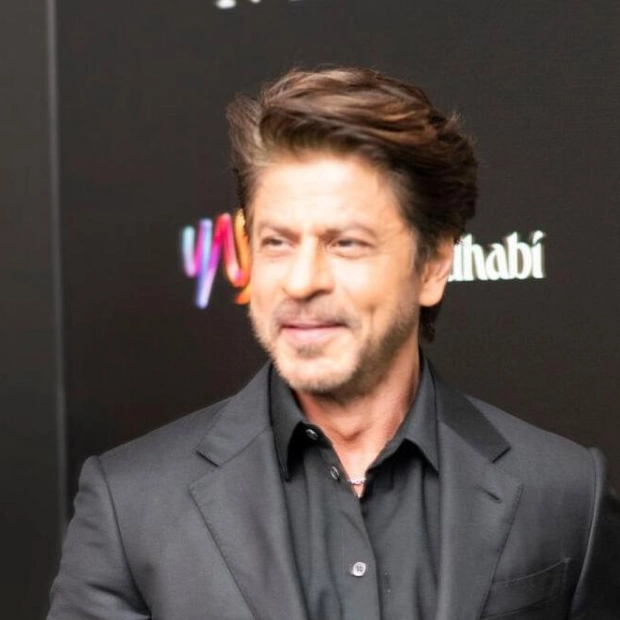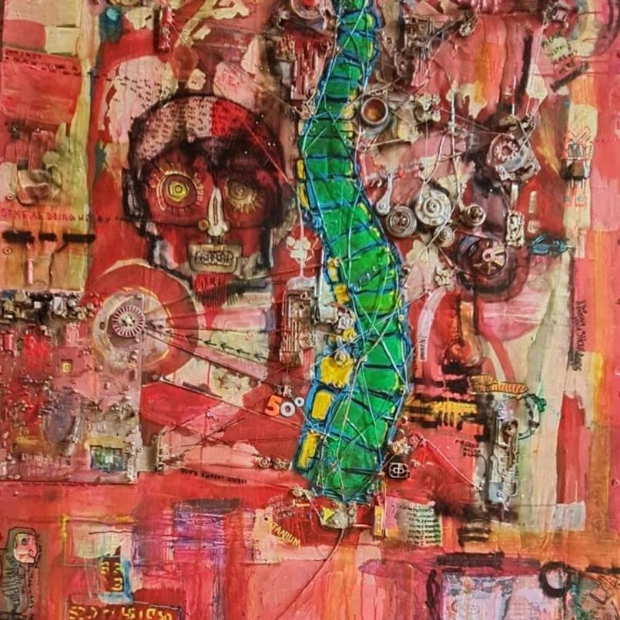This place feels like the ultimate frontier town—a settlement on the edge of the present, boldly looking towards the future. This burgeoning megacity boasts a population as diverse as any I've encountered. Outside the communal dining hall, people from all corners of the globe are conversing in the cool night air, sharing their fears, hopes, backstories, and aspirations. As I observe, I notice something unusual. There are no traffic noises, no diesel engines sputtering or horns honking, just the soft hum of electric motors and the gentle roll of scooter wheels on newly paved roads. This is NC1, my first introduction to the residents of Neom.
We are here in Neom to conduct a digital wellbeing workshop. Over the next few days, we will delve into how technology can foster human flourishing and how to mitigate its unintended negative impacts on physical, psychological, and social health. This focus is increasingly crucial as our lives become more digitized and intertwined with our technological advancements.
Neom aims for next-level connectivity. Situated in the northwest of Saudi Arabia, this region is now home to some of the world's most futuristic and technologically advanced megaprojects, such as The Line, Magna, Trojena, Sindalah, and Oxagon—names so new that my spellchecker doesn't recognize them. The word Neom itself is innovative, combining the Greek prefix 'neo,' meaning new, with the Arabic letter 'meem' (m), symbolizing 'mustaqbal' (future). New Future, or Neom, is still a work in progress, but it embodies the need for change, innovative living, and novel ways to work, rest, and play.
Ideas about future lifestyles and settlements have traditionally been the domain of writers, poets, and philosophers. For example, in 1516, Sir Thomas More wrote 'Utopia,' a fictional work describing an imaginary land where gold and silver are worthless, and the working day is limited to six hours, leaving ample time for study. For the Utopians, happiness is rooted in mental improvement. However, for every utopia, there are equal numbers of dystopias. These pessimistic visions of the future often revolve around technology. In E.M. Forster's 1909 novella 'The Machine Stops,' future humans live in underground bunkers, isolated and entirely dependent on 'the machine' for communication, entertainment, shelter, and sustenance. Physical inactivity and a sunless existence make them physically weak—bundles of flesh with pale, fungus-like faces. Similarly, in Neal Stephenson's 1992 novel 'Snow Crash,' we encounter the 'Metaverse,' a virtual world seen as a successor to the Internet, populated by millions of people and chatbots in avatar form. This visually stunning and interactive online world serves as an escape from the pain and horror of the physical world.
Neom, however, is not a work of fiction. Here, the future is being built with concrete, aluminum, glass, and steel. These forward-thinking megaprojects are integrating cutting-edge technologies with unparalleled computing power to enhance the lives of residents and visitors. Moreover, at the core of Neom's vision is a commitment to conservation and environmental sustainability. Approximately 95 percent of the land and sea will be protected for nature, along with an ambitious program for regreening and rewilding. According to the United Nations, two-thirds of the world's population will live in cities by 2050. Meeting this urban expansion requires new, smarter cities—human settlements that break old molds. This necessitates sustainable urban planning and innovations in infrastructure and public services—Neom's reimagining of 'The City' promises to offer a valuable blueprint for others to follow.
We concluded our two-day digital wellbeing workshop with the Neom team. This diverse group included specialists in population health, architects, educators, psychologists, and more. These passionate pioneers were dedicated to maximizing the benefits of technology while remaining firmly human-centric. Our future cities will be digital ecosystems—how we approach technology has never been more critical.






